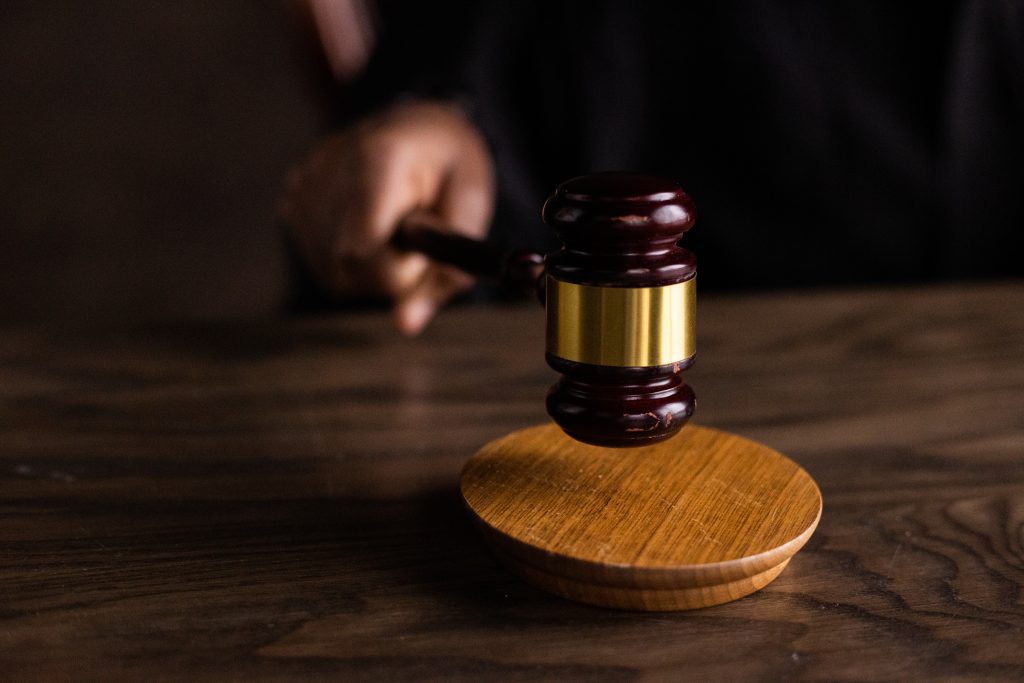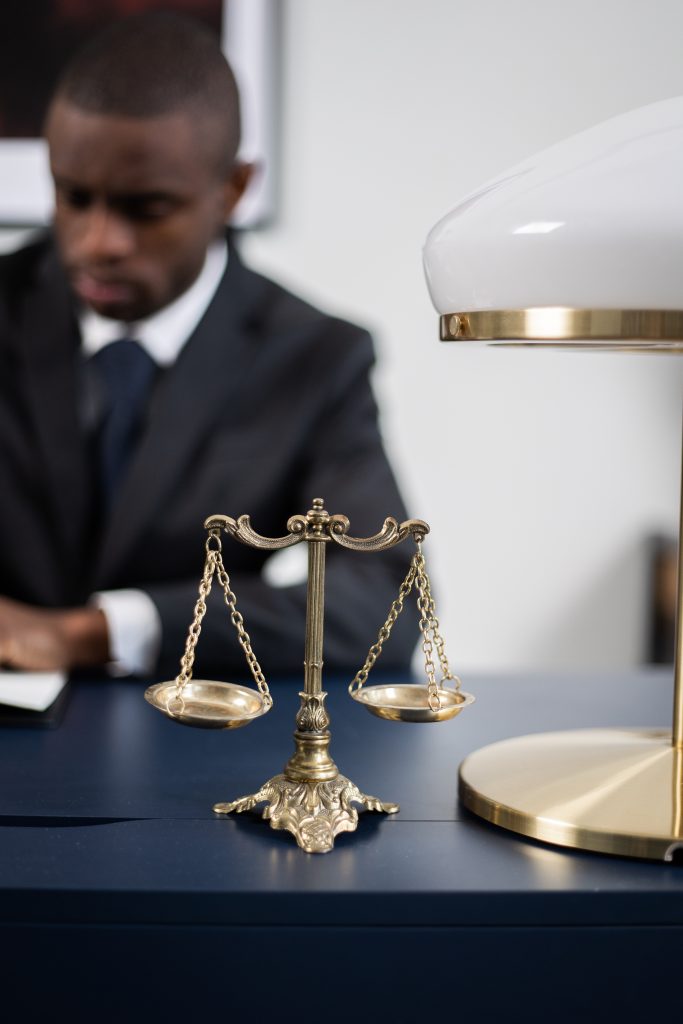If you are a business owner in Hyrum, Utah and find yourself in need of legal assistance, look no further. The expertise of a business lawyer can be invaluable in navigating the complexities of the legal landscape. From contract negotiations to dispute resolution, a skilled attorney can provide you with the guidance and support needed to protect your interests and ensure the successful operation of your business. In this article, we will explore the role of a business lawyer and how they can assist you in achieving your goals. So, whether you are just starting out or facing a legal issue, read on to discover how a business lawyer in Hyrum, Utah can be your trusted advisor and advocate.

Overview of Business Law
Business law is an essential aspect of running a successful business, as it encompasses the legal rules and regulations that govern various business activities. Understanding the importance of business law is crucial for every business owner, as it helps protect their interests and mitigates potential legal risks. To navigate the complex legal landscape, businesses often rely on the expertise of a business lawyer who specializes in providing legal advice and guidance in all aspects of business law.
Understanding the Importance of Business Law
Business law plays a critical role in ensuring that businesses operate within the confines of legal regulations and adhere to ethical business practices. It encompasses a wide range of legal areas, including contract law, employment law, intellectual property law, and more. Without a thorough understanding of these laws and regulations, businesses may unknowingly violate legal requirements, leading to costly legal disputes, reputation damage, and financial penalties.
The Role of a Business Lawyer
A business lawyer is a legal professional who specializes in advising businesses on their legal rights, responsibilities, and obligations. Their role is to provide guidance and representation in various legal matters, such as contract drafting and negotiation, compliance with employment laws, resolving business disputes, and protecting intellectual property rights. A business lawyer acts as a legal partner, helping businesses navigate legal complexities and ensuring their compliance with the law.
Common Legal Issues faced by Businesses
Businesses often encounter a variety of legal issues throughout their operations. Some of the most common legal challenges faced by businesses include contract disputes, employment issues, intellectual property infringement, regulatory compliance, and business disputes. These legal issues can be complex and time-consuming to resolve, posing significant risks to the business’s reputation, finances, and overall success.
Why Hiring a Business Lawyer is Essential
Hiring a business lawyer is essential for several reasons. Firstly, a business lawyer possesses in-depth knowledge and expertise in business law, enabling them to provide accurate and reliable legal advice tailored to the specific needs of the business. They can help businesses understand and comply with complex legal requirements, ensuring that the business operates within legal boundaries.
Secondly, a business lawyer can help minimize legal risks by identifying potential issues and developing strategies to mitigate them. By reviewing contracts, identifying potential pitfalls, and proposing necessary modifications, a business lawyer can protect the business’s interests and prevent costly disputes.
Additionally, a business lawyer can provide valuable guidance in navigating business transactions, such as mergers and acquisitions, partnership agreements, and franchise agreements. Their expertise and experience in negotiating and drafting contracts can help businesses secure favorable terms and avoid potential pitfalls.
Finally, a business lawyer can represent the business in legal disputes and litigation, ensuring that the business’s interests are effectively advocated for in court. They can also assist in alternative dispute resolution methods, such as mediation and arbitration, to help resolve disputes outside of court.
Key Services Offered by a Business Lawyer
A business lawyer offers a wide range of services tailored to meet the legal needs of businesses. Some of the key services provided by a business lawyer include:
Formation of Business Entities
When starting a business, it is essential to choose the right legal structure, such as a sole proprietorship, partnership, limited liability company (LLC), or corporation. A business lawyer can guide entrepreneurs in understanding the advantages and disadvantages of each entity type and assist in the formation and registration process.
Drafting and Reviewing Contracts
Contracts are an integral part of any business’s operations, governing relationships with clients, vendors, suppliers, employees, and other parties. A business lawyer can draft, review, and negotiate contracts to ensure that they accurately reflect the business’s rights and obligations, protect its interests, and minimize legal risks.
Intellectual Property Protection
Protecting intellectual property, such as trademarks, copyrights, and patents, is crucial for businesses to safeguard their unique ideas, inventions, and brand identity. A business lawyer can assist in registering trademarks, filing copyright applications, drafting licensing agreements, and enforcing intellectual property rights.
Employment Law Compliance
Employment law compliance is essential to protect both the business and its employees. A business lawyer can help businesses navigate complex employment laws, such as anti-discrimination regulations, wage and hour laws, and employee benefit plans. They can also draft employment contracts and provide guidance on disciplinary actions and terminations.
Litigation and Dispute Resolution
In the event of a business dispute or legal conflict, a business lawyer can provide representation and advocacy in litigation. They can also explore alternative dispute resolution methods, such as mediation or arbitration, to achieve a resolution outside of the courtroom.

Choosing the Right Business Lawyer
Choosing the right business lawyer is crucial for businesses to receive accurate legal advice and effective representation. Here are the key steps to follow when selecting a business lawyer:
Identifying Your Specific Legal Needs
Before searching for a business lawyer, it’s important to identify your specific legal needs and the areas of business law where you require assistance. This will help narrow down your search and find a lawyer with the relevant expertise and experience.
Researching Local Business Lawyers
Start by researching local business lawyers who specialize in the areas of law that align with your specific needs. Local lawyers often have a better understanding of the local legal landscape and can provide better insight and guidance.
Reviewing Qualifications and Experience
Carefully review the qualifications, credentials, and experience of potential business lawyers. Look for lawyers who have a strong background in business law and a track record of successful outcomes for their clients.
Seeking Recommendations and Referrals
Seek recommendations and referrals from trusted sources, such as other business owners, colleagues, or professionals in the legal field. Personal recommendations can provide valuable insights into the quality and reliability of a business lawyer.
The Benefits of Hiring a Business Lawyer
Hiring a business lawyer offers several benefits for businesses, including:
Minimizing Legal Risks
A business lawyer can assess potential legal risks and develop strategies to minimize them. By reviewing contracts, identifying potential pitfalls, and ensuring compliance with relevant laws and regulations, they help businesses avoid legal disputes and costly penalties.
Ensuring Compliance with Laws and Regulations
Staying compliant with the ever-evolving laws and regulations is essential for businesses. A business lawyer can provide guidance on legal requirements, draft policies and procedures, and ensure that the business operates within legal boundaries.
Avoiding Costly Mistakes
Missteps in legal matters can have significant financial and reputational consequences for businesses. By working with a business lawyer, businesses can avoid costly mistakes and make informed decisions based on accurate legal advice.
Providing Expert Legal Advice
A business lawyer is a trusted and knowledgeable advisor who can provide expert legal advice in various business matters. They can answer legal questions, provide guidance on complex issues, and help businesses make sound and informed decisions that align with legal requirements.

Navigating Business Transactions with Legal Support
Business transactions, such as mergers and acquisitions, partnership agreements, business succession planning, and franchise agreements, require careful legal consideration. A business lawyer can provide legal support and expertise throughout the transaction process, ensuring that all legal requirements are met, and the business’s interests are protected.
Mergers and Acquisitions
Mergers and acquisitions involve complex legal negotiations, due diligence, and documentation. A business lawyer can assist in the process by reviewing contracts, identifying potential risks, and ensuring that all legal requirements are met.
Partnership Agreements
Partnership agreements govern the relationship between business partners and outline their rights, responsibilities, and profit-sharing arrangements. A business lawyer can assist in drafting and reviewing partnership agreements to ensure that the rights and interests of all partners are protected.
Business Succession Planning
Business succession planning involves preparing for the smooth transfer of ownership and management to the next generation or a new owner. A business lawyer can help develop a comprehensive succession plan, including buy-sell agreements, exit strategies, and estate planning.
Franchise Agreements
Franchise agreements establish the legal relationship between a franchisor and a franchisee. A business lawyer can review and negotiate franchise agreements, ensuring that the terms are fair and protect the interests of the franchisee.
Understanding Business Litigation
Business litigation refers to legal disputes and conflicts that arise in the course of business operations. Understanding the various aspects of business litigation is essential for businesses to effectively navigate and resolve these disputes.
Common Causes of Business Disputes
Business disputes can arise from various reasons, including breach of contract, partnership disagreements, intellectual property infringement, employment disputes, and more. These disputes can disrupt business operations and lead to financial losses if not resolved promptly and effectively.
Alternative Dispute Resolution Methods
To avoid the time and expense of litigation, businesses can explore alternative dispute resolution methods, such as mediation or arbitration. A business lawyer can guide businesses through these processes, facilitating negotiations and advocating for the business’s interests.
Preparing for Litigation
In cases where litigation is unavoidable, a business lawyer can help businesses prepare a strong legal strategy. This includes gathering and organizing relevant evidence, identifying key legal arguments, and developing a persuasive case to present in court.
Representing Businesses in Court
A business lawyer plays a crucial role in representing businesses in court during business litigation. They present arguments, cross-examine witnesses, and advocate for their client’s interests. A skilled business lawyer can significantly impact the outcome of a business’s legal dispute.
Business Lawyer’s Role in Intellectual Property
Intellectual property (IP) protection is vital for businesses to secure their valuable copyrights, trademarks, and patents. A business lawyer specializing in IP law can provide comprehensive legal services in this area.
Trademark Registration and Protection
A business lawyer can assist businesses in registering trademarks and protecting them from infringement. They conduct thorough searches to ensure the uniqueness of a trademark and guide businesses through the registration process.
Copyright and Patent Law
Copyright and patent laws provide protection for original works of authorship and inventions, respectively. A business lawyer can help businesses understand their rights under copyright and patent laws, register copyrights and patents, and enforce these rights in case of infringement.
Enforcement of Intellectual Property Rights
When instances of intellectual property infringement occur, a business lawyer can take legal action on behalf of the business. They can send cease and desist letters, negotiate settlements, or initiate legal proceedings to protect the business’s intellectual property.
Avoiding Intellectual Property Infringement
A business lawyer can help businesses avoid unintentional infringement of another party’s intellectual property rights. They can conduct thorough searches to ensure that proposed business names, logos, or products do not infringe on existing trademarks or copyrights.
Employment Law Matters for Businesses
Complying with employment laws is essential for businesses to maintain a fair and legally compliant workplace. A business lawyer can assist businesses in navigating various employment law matters.
Hiring Practices and Discrimination Laws
A business lawyer can guide businesses in developing non-discriminatory hiring practices and policies that comply with federal and state anti-discrimination laws. They can also assist in drafting job descriptions, conducting interviews, and ensuring fair employment practices.
Employee Benefit Plans
Employee benefit plans, such as health insurance, retirement plans, and stock options, are subject to numerous legal requirements. A business lawyer can help businesses navigate the complex landscape of employee benefit plans, ensuring compliance with relevant laws and regulations.
Drafting Employment Contracts
Employment contracts outline the terms and conditions of employment, including compensation, benefits, job responsibilities, and termination clauses. A business lawyer can draft employment contracts that protect the business’s interests while ensuring compliance with employment laws.
Dispute Resolution with Employees
When employment disputes arise, such as wrongful termination claims or harassment complaints, a business lawyer can provide guidance and representation. They can assist in resolving disputes through negotiation or represent the business in employment-related litigation.
Essential Contracts for Business Compliance
Contracts are a fundamental aspect of conducting business. A business lawyer can help businesses draft and review essential contracts to ensure compliance with legal requirements and protect the business’s interests.
Vendor and Client Contracts
Vendor and client contracts establish the legal relationship between businesses and their suppliers or customers. A business lawyer can review and negotiate these contracts, ensuring that the terms are fair and favorable for the business.
Non-Disclosure Agreements
Non-disclosure agreements (NDAs) protect businesses’ confidential information when sharing it with employees, partners, or third parties. A business lawyer can draft NDAs that maintain the confidentiality of sensitive information and outline the consequences of a breach.
Partnership and Shareholder Agreements
Partnership and shareholder agreements govern the relationship between partners or shareholders in a business. A business lawyer can assist in drafting these agreements, addressing ownership rights, profit-sharing, dispute resolution mechanisms, and other essential provisions.
Commercial Lease Agreements
For businesses leasing commercial properties, it is crucial to have a well-drafted commercial lease agreement that protects their rights and interests. A business lawyer can negotiate and review lease agreements, ensuring that the terms are favorable and compliant with legal requirements.
Frequently Asked Questions
What is the role of a business lawyer?
A business lawyer plays a vital role in providing legal advice and representation to businesses. They assist in various legal matters, such as contract drafting, compliance with laws and regulations, intellectual property protection, employment law matters, and business disputes.
How much does a business lawyer charge?
The cost of hiring a business lawyer can vary depending on various factors, such as the complexity of the legal matter, the lawyer’s experience and expertise, and the location. Business lawyers often charge an hourly rate or a flat fee for specific services.
What should I look for when choosing a business lawyer?
When choosing a business lawyer, it is essential to consider their qualifications, experience, and expertise in business law. Additionally, seek recommendations and referrals, and ensure that the lawyer has a track record of successfully representing businesses in similar legal matters.
Do I really need a business lawyer?
While not all businesses may require a business lawyer, it is highly recommended to seek their guidance and expertise, particularly when dealing with complex legal matters. A business lawyer can help minimize legal risks, ensure compliance with laws, protect intellectual property, and provide expert legal advice tailored to the business’s unique needs.
Can a business lawyer help with intellectual property protection?
Yes, a business lawyer specializing in intellectual property can assist businesses in protecting their trademarks, copyrights, and patents. They can guide businesses through the registration process, enforce intellectual property rights, and help prevent unintentional infringement.
In conclusion, understanding and navigating business law is crucial for every business owner. Hiring a business lawyer ensures compliance with laws and regulations, minimizes legal risks, provides expert legal advice, and helps businesses resolve disputes effectively. By choosing the right business lawyer and leveraging their expertise, businesses can protect their interests, mitigate potential legal issues, and focus on their core operations.

























